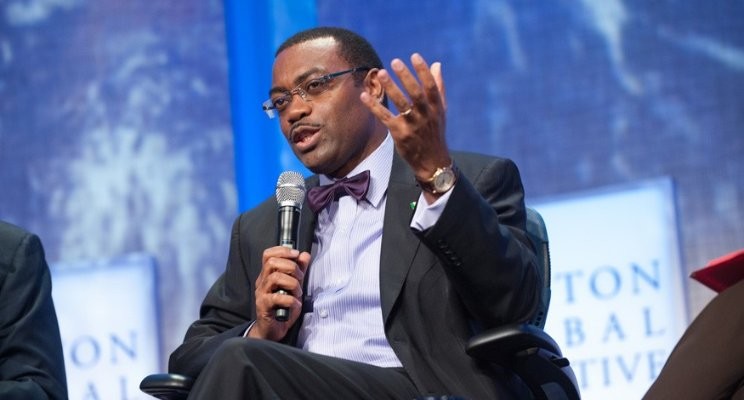Nigeria should rapidly modernize, transform its ports – AfDB President, Akinwunmi Adesina
...To key into AfCFTA opportunities
Nigeria must urgently begin a modernisation and transformation process of its ports, if it has to become a port hub and take advantage of several business opportunities in the sub-region and on the African Continent.
President of the African Development Bank (AfDB), Dr. Akinwunmi Adeshina, gave the charge on Monday in Abuja while speaking at the opening of a two-day mid-term ministerial performance review retreat.
“Your Excellency, we should not be decongesting the ports in Nigeria, we should be transforming the ports,” he said.
The AfDB President spoke particularly of the need to allow the ports function as business facilitators and not just for revenue generation.
He said it was needful to clean the port system of such avoidable challenges as administrative bottlenecks and duplication of functions by agencies of government in the ports.
His words: “Nigeria should rapidly modernize and transform its ports. Ports are not there for revenue generation. They are for facilitating business and exports, and stimulating industrial manufacturing, and competitiveness of local businesses and exports.
“This must start with cleaning up administrative bottlenecks, most of which are unnecessary with multiple government agencies at the ports, high transaction costs or even plain extortions from illegal taxes, which do not go into the coffers of the government.”
He added that: “According to the sector operators, the cost of exporting 100 tons of cargo in Nigeria is $35,000, compared to $4,000 in Ghana. Today, the leading ports for West Africa are in Cote d’Ivoire, Ghana, Togo, and Benin Republic. All these countries have modernized their port management systems, leaving Nigeria far behind.”
He urged Nigeria to immediately learn from Morocco’s world-class Tangier-Med port, which he described saying: “the port is unique in that it is an industrial port complex, and a platform that has over 1,100 companies. They collectively exported over € 8 billion worth of goods in 2020.
“Companies located at the Tangier-Med port have allowed Morocco to move up the global value chains, including automobiles, automotive parts, aeronautics, agriculture and food manufacturing, textiles, and logistics. Annually, over 460,000 cars are manufactured in the zone for exports. And more interesting is that the bulk of the human resources to do these are Moroccans.
“I took a walk at the Tangier-Med Port. I actually thought they were on vacation, as I did not see people — just machines, haulers, automated systems moving containers in what looked like a well-synchronized maze, with incredible efficiency. There were no kilometers of trucks waiting to get to the port.”
Speaking on business opportunities with projections of business expenditures rising to over $6 trillion, Adeshina advised on areas that would likely give greatest economic benefits in terms of job creation.
He said: “This brings me to the issue of trade, investment, and competitiveness. The Africa Continental Free Trade Area presents a major opportunity for Nigeria. Consumer and business expenditures in Africa are projected to rise to $6.7 trillion by 2030.
“Significant support should be directed toward boosting industrial manufacturing capacities. Nigeria should also move rapidly to the top of selected value chains, such as automobiles, computers and electronics, textile and garments, and food manufacturing, transport, and logistics.”

